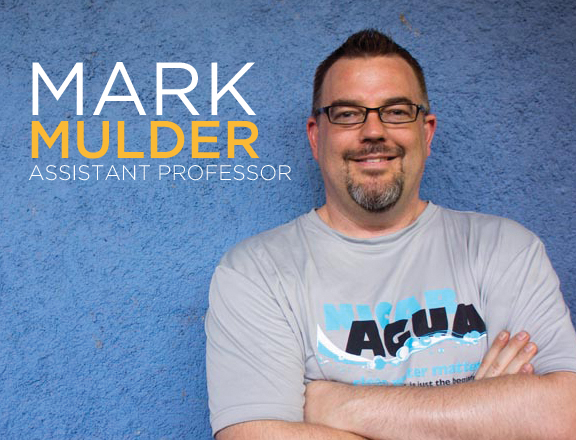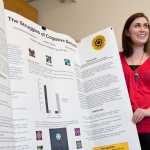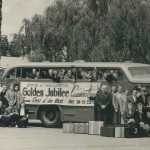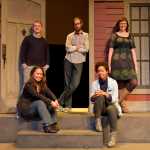Are You Here to Serve or Just to Update Your Facebook Status?
A Professor’s Perspective
Before 10 Pacific Lutheran University students traveled to Nicaragua this spring, there were the usual nervous jitters and questions from the group—what to pack, and just how hot would it be? But some deeper questions emerged, too: How would we be perceived? How could we best build relationships and show love to this community?
This project is an example of that intentional approach. Long before the PLU group became active in the project, the community of El Limonal gathered to request a well. Residents and leaders of the community approached the nonprofit organization Living Water International, which then utilized the community leadership as the project driver. El Limonal residents and leaders determined the location of the well, who would work collaboratively with the PLU team and which residents would be trained in the ongoing maintenance of the well. Collaboration is central and intentional in this project, and critical to its success.

The collaborative narrative spanned across borders between the communities of El Limonal and Parkland. Students at nearby Brookdale Elementary learned from PLU students about El Limonal. Prior to departure, the PLU student team visited all classrooms in the school, training Brookdale students about hygiene and water, and in many cases using the same curriculum shared in Nicaragua. Other collaboration occurred in the Parkland community, with the local utility provider and local churches, all focused on building awareness around the global water crisis.
The narrative continued on campus. In a series of predeparture seminars provided by an interdisciplinary team of PLU faculty, the PLU student team discussed topics such as ethical approaches to water, processes for community building and conflict resolution, and deeper understanding and appreciation of Nicaraguan culture and history. It is a great example of the approach of the “New American University”: linking liberal arts education with civic engagement and professional programs.
A significant amount of collaboration driven by the community of El Limonal preceded the PLU team’s arrival and continues, now, after the PLU team’s departure. This collaboration touched not only the construction of the well, but also the hygiene training that will help those trained spread this knowledge throughout the community.
Upon return to campus, the collaboration continued. At an assembly at Brookdale Elementary, the team discussed the project in El Limonal and shared with students the photo of the excited children in the village who had just received sporting equipment donated via their penny drive. The Nicaragua team has reconnected with all partners—Brookdale, Parkland Light & Water, Trinity Lutheran Church and Rainier View Christian Church, all of whom graciously supported the project.
This was truly a life-changing experience not only for the students but also for the residents. Clean water means that less effort has to be put forth to secure water in the daily schedule. Fewer children get sick and, as Living Water International officials note, the entire economic status of the community is uplifted due to the fact that this well provides clean and safe water for a larger community. As an example of this, now that clean water is present, the community is considering the potential of adding a bakery as part of the feeding center. This would offer low-cost bread to the community with an opportunity to generate income for the workers and the feeding center by selling bread at the market.
While the video in this story captures just a few moments of our time in Nicaragua, we hope it can show the viewer the community we love, and capture just some of the interactions shared between community members and their new friends from PLU.
The opening question asks, “Are you here to serve or just to update your Facebook status?” For this PLU group, the answer was, obviously, to serve. We are grateful and honored this community opened its hearts to us, and that during our time there not only was a well collaboratively constructed and educational sessions offered, but we all emerged (residents and students) with new relationships and experiences that we hold dear. We cannot wait to return to Nicaragua next year to work with another community.
Editor’s Note: About the Pictures and Video
The collaborative nature and permission approach which are the cornerstones of PLU’s Study Away program were present in El Limonal. Community leaders and interviewees granted permission for the interviews and encouraged the sharing of the information, stories and images emerging from El Limonal. The videographer and reporter from PLU used similar techniques and always asked permission first.
Many community members would ask that their photo be taken. As just one example, the little girl at the end of the video in the beautiful dress gave Professor Mulder permission to take that photograph. Her sister, in a similar white dress, did not wish to have her photograph taken, and thus there are no images of her sister. After Professor Mulder took the photograph, the little girl beamed with a bright smile as he shared with her the beautiful image of her on his camera.
In other cases, the team would ask permission of the parent to photograph his or her child (or them together) and similarly share the image with the child and the parent. In a unique twist, and amidst lots of shared laughter, the children even became the photographers and flipped the camera’s focus to the PLU team, capturing lots of eyeball and nostril photos! While they didn’t make the final cut, they were used in the Resolute blog. Enjoy!























